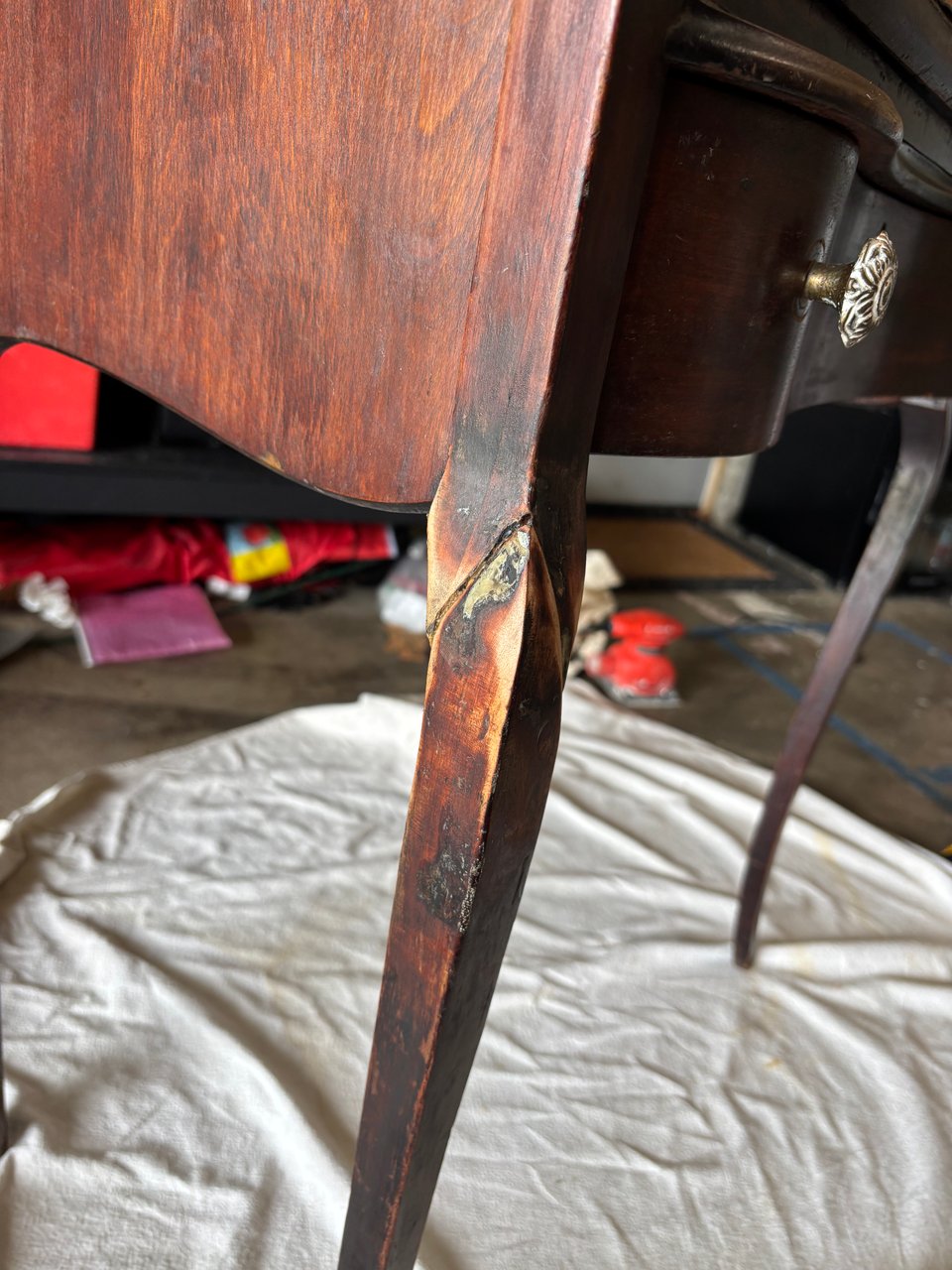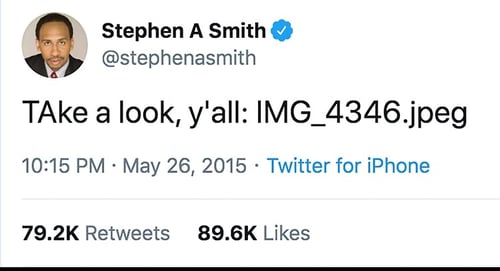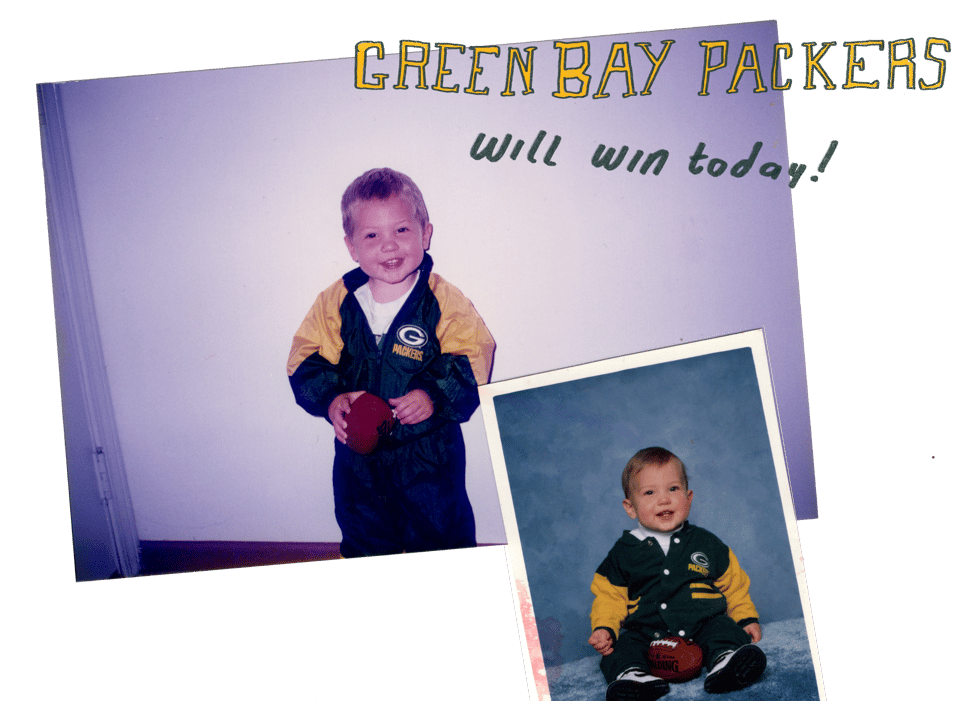

Hello and welcome. You've got seven sections to look forward to today: home projects, music, books, web design, TV broadcast technology, links, and one little drawing.
August has been charming in Tulsa. Highs in the mid-70s, cool mornings. We usually don't get that until mid-October. I don't take it for granted, and I don't expect it to last, but I'm happy as long as it does.
I built a window seat in our living room. We've got this trapezoid-shaped cutout with some bay windows that have been absolutely begging for it. I think there's still some work to do—I'd want the seat to be deeper, I forgot to include space for cushions when I did my measurements. Come over and have a sit.

You're reading an archived copy of Septology. Subscribe here to get the next edition right in your inbox.
My other furniture project was putting the leg back on Becky's antique secretary desk. The leg had been broken a long time and repair had been attempted twice and then it broke again, so it was just sitting in our garage while we were figuring out what to do with it. One long-term goal is to get the garage organized, and that means removing things that don't need to be there, so I needed to make a decision about the desk. I decided to glue the leg and then also screw it in—in a perfect world, I'd repair it properly and use all the right techniques instead of something coarse as a screw, but in this world, a working desk in the house with a screwed-on leg is better than a broken desk in the garage with no leg at all.
Here's what it looked like before the new coat of stain. The old glue residue is still there, but there's less of it.

My last home project was electrical. One of our light switches controls the oven, and that's something Becky and I would like to fix, so her dad and I tried to figure it out, and we didn't. We went up into the attic three times to figure out where the power was coming from, because—I learned this—when you construct a house, you send your power from the breaker box up into the attic, and then down again into the correct place in the wall. I was up there laying between beams, just blindly groping around in the pink fiberglass insulation hoping to find a conduit that I did not in fact find. That meant the problem was somewhere inside the wall, and we could not figure out where.
The light switch will remain in control of the oven for the foreseeable future.
Two nights ago I saw MJ Lenderman and the Wind at Cain's Ballroom. MJ Lenderman sounds like if The Front Bottoms played the blues? I don't know if that's a helpful comparison. A less-commercial Counting Crows? Mac DeMarco if he was more wiry and less relaxed? There was a great profile of DeMarco in the New Yorker a few weeks ago, come to think of it.
I don't know all that many MJ Lenderman songs (or I didn't, before Friday), but I was excited to go to the show because I knew he could really play. That's one of those opinions that makes me remember/realize/recognize I'm getting older.
Nap Eyes was the opener. They played long, meditative ballads, verses without choruses, and I felt like I was in junior high again learning how to listen to songwriting. Beautiful night.
The Nap Eyes merch table was bold and endearing; one of their shirts said "I'm Bad Now" and another said "No Sex Till World Peace." I was too much of a square to buy either one. Picked up one of their records though. Here's what it said on the sleeve:
"The Neon Gate reveals classic touchstones (the uneasy interplay of physics and philosophy, perambulatory meditations, self-interrogating soliloquies, apertures of surreality, video games), but also evidence of divergent impulses towards non-linear abstraction and longform improvisational composition (resulting in their most discursive, deconstructed and deliquescent songs to date), a narrative and lyric formality (including adaptations of thorny poems by Alexander Pushkin and W.B. Yeats), imparting the sense that Nap Eyes have transmuted, as has their understanding of what a song is, what it can do, where it might go."
I'll tell you the truth: that's exactly what Nap Eyes sounded like. It was good to be reminded that sometimes you can write just to see how words feel next to each other.
Also music: I've updated my "acceptance" in-rotation playlist (for the first time since July 19), and also I have this month's 50 top-played songs. Listened to the new Gordi record quite a bit, also an acoustic EP from Spanish Love Songs.
For the past few issues of Septology, maybe you remember, I've focused the bulk of the sletter on a classic or modern classic book: Lonesome Dove; Northanger Abbey; Tinker, Tailor, Soldier, Spy. This month was supposed to be Middlemarch, by George Eliot, but I couldn't get any momentum going, and the same thing happened when I switched to Gilead, by Marilynne Robinson. Two all-time favorites, two of the best ever written, but they just didn't grab me this time. No worries! I'll just go read something that does! I'm the boss!
Since August 7, I have read:
The Hardest Job In The World is about the US presidency. Becky and I have been on a huge West Wing kick—it's exciting to spend time in stories where people are working very hard at jobs that are very demanding. They're giving it all they've got. They're at their limit. This is as much as a person can do in their situation; it's the speed of light. (The Pitt was the last show that captured me like that.)
The Hardest Job In The World talks through the demands of the office, like how the President's days are structured, what their actual priorities are, and how the day-to-day work differs from the campaign, and how it differs from what the candidates say their work will be like when they talk about it during the campaign.
My main complaint is that Dickerson will spend a chapter explaining different responsibilities of the President, and then he'll speak at length about how Donald Trump is not presidential because he fails at that task and it's like, alright, John, thanks, I'm convinced, will you tell me more about the little hacks that Eisenhower used to save time? (You could never hand him a sealed envelope—had to read it first so you could be sure it was worth his attention. Also shaves a few seconds off the opening process itself.)
My buddy Tucker says there are three kinds of people who watch The West Wing: people who love Aaron Sorkin's writing, people who love fast-paced TV, and people who think "I could be President of the United States." The book feeds this last impulse. Imagine a vast bureaucracy existed specifically to help you do your job, your schedule is set, your meals are included, your office is in a mansion in which you also live. Not only that, but you're friends with clever and hardworking characters from The West Wing. Imagine what you could do!
This feeds one of my strongest impulses, neither good nor bad, which is to figure out a system that works—find a way to organize all my priorities, all my tasks, so I do everything right. It's a losing battle but it's a hard habit to kick.
Not coming up for air yet, though, because up next I've got a book on hold about the White House Chiefs of Staff.
The other book I want to talk about this time is Godwin. I read it about this time a year ago, which makes it one of the fastest re-reads I've done in a long time. It was my favorite book of 2024.
Lakesha manages a co-op of technical writers in Pittsburgh. Mark is one of the members. Mark's half-brother Geoff grew up in England and is trying to be a soccer agent after a middling semi-pro career as a footballer in Paris. Geoff has a lead about a soccer prodigy, Godwin, and wants Mark to come help track him down. Mark winds up deeply and suddenly entrenched in the office politics of the technical writers' co-op. It seems like nothing is going to change and then everything does.
Mark is a deeply relatable character, to me, and a tragic one. One reason is that I like the technical writers from Pittsburgh that I've known, but that aside, Mark is good at his work, he enjoys it, but there's a part of him that feels untapped, he's unsettled, jarringly aware of the systems at work around him—entropy, game theory, The Man. (Lakesha says he suffers from a "crisis of dignity.") And his biting self-awareness keeps him superior to his goof-off little brother and his estranged mother in England, but if they could find Godwin in rural West Africa (probably Togo but possibly in Benin?), if they could represent him, he's something else, he'll be the best player in the Premier League, that's, what, £150,000 a week? More? And you're saying you wouldn't want a piece of that pie?
The greed poisons all of them. I'll leave it there to avoid spoiling anything. The best parts of the book are in the last 30 pages or so, a huge twist, hidden in plain sight, unravels everything.
And, I mean, that's a soccer match: you can hold steady for 80 minutes but then one bold, perfect kick will break you. Read Godwin.
Last book thing: I read a good blog post a few days ago about enjoying reading. I was pleased to see I'd already implemented two of the tips this month: set aside books you aren't reading and re-read the ones you love. Enjoy it, don't force it.
I've mentioned before that I'm learning HTML in order to make this newsletter look better. Here's as far as I've gotten: these are the websites I've made for the "Creating Web Pages" course from Tulsa Tech: "My Website" and "Hot Dog Recipe." I do not vouch for the recipe itself.
If you're reading this in your inbox, you'll notice that we've gone back to the standard Buttondown format—it's simple, it's nice, it works. The e-mail inbox is not where I'm going to cut my teeth learning HTML. I'll use a webpage for that. This is it.
It's hard not to be disappointed in how slow my progress has gone (if I had the perfect system, I would have set enough time aside to learn the web and write the newsletter too, and clear out the garage and and and), but I take comfort in the fact that my days are full of other things. I'm seeing good bands with good friends. I'm building and fixing furniture. I'm reading books. Life's not so bad.
Despite my HTML-related shortcomings, I made a video about this newsletter and its design. It was the last challenge for the Tom Sachs I.S.R.U. summer camp I wrote about last month—you had to make a video about one of your rituals, one minute or less. TAke a look y'all:

Today is the first Sunday of the 2025 NFL season. I didn't have access to the games last year because I wasn't going to spend $80 or whatever on YouTube TV or Hulu with Live Sports. But then I got to thinking—there's no way everyone in the world is paying $80 a month for TV, and yet, everyone has it. Cable, maybe, but the broadcast networks? No way. You gotta turn on the news when there's a tornado. There had to be an alternative. And from there I put it together that I had to get an antenna for my TV. I bought one at Target on Thursday.
You wouldn't believe it: they are sending TV signals right into my house! For free! The TV has ads, to be fair, but so does HBO Max With Ads, and that'll set you back $9.99 a month. Not my antenna though!!!
I don't think I'm much stupider than most other people my age (though there's always that chance), but my sense is that this function of the TV is not widespread knowledge. Anyone among my peers who wants to watch sports is trying to do it by means of the internet, when instead you could buy an antenna for $20 one time and have TV forever. Hope this helps.
It feels like I've skipped a step, in my understanding of the world, because I only know the disruption of streaming services, without much understanding of the broadcast environment that came before. G.K. Chesterton tells a little parable about reform that I think is relevant here: "A fence or gate [is] erected across a road. The more modern type of reformer goes gaily up to it and says, "I don't see the use of this; let us clear it away." To which the more intelligent type of reformer will do well to answer: "If you don't see the use of it, I certainly won't let you clear it away. Go away and think. Then, when you can come back and tell me that you do see the use of it, I may allow you to destroy it."
I feel like the Netflixes of the world cleared something away—"You don't need this! Trust us!"—before I really got the chance to take a look at it and make a decision.
Anyway, the Packers are on channel 6 at 3:25. My boys are going all the way this year! Come on boys!

Nintendo Music is an app with soundtracks from the Nintendo video games. One cool/weird thing: you can "extend" tracks for up to an hour. They end up sounding like ambient tracks, like Hiroshi Yoshimura or somebody like that. You need a Switch online subscription, but a fun bonus if you already have one.
The Grass At Airports is a beautiful little short story. The narrator is in charge of landscaping at the airport—not the external stuff by the terminal, but the stretches in between the runways. Lawns, maybe? I don't know if you'd call them lawns?
The Hardest-Working Font in Manhattan is called "Gorton," and it's the hardest-working because it's the one that's used in anything that's engraved. Imagine, like, the list of floors on an elevator? That narrow font with circular ends? That's the one. This webpage is spectacular, it's the Design Director at Figma who wrote it. He's also the one who put Pac-Man on the Google homepage 15 years ago. I remember that day, that was a great day.
Kate Spade apparently had a very cool office, which makes sense, not really news, but someone who worked there (she's a designer herself now) wrote a post about it. Fun to imagine a scene so creative and alive at an office. There also isn't any kind of news peg, no clear reason why she's writing this now, except to remember something special.
Virgil Abloh's archives have been published by GQ. I love an archive. I like seeing the structure and the pattern they use to make sense of such a prolific creator. My favorite artifact, I think, is this IBM graffiti below.
(Going back to books—just started listening to a biography of Thomas Watson Jr., who ran IBM through its height in the mid-20th century.)


Every day since July 24, I've been trying to do something creative first thing after waking up—this was also part of the Tom Sachs challenges, it's called "Output Before Input." Here's just one of those. It was inspired by the image beneath it, which I've had saved for years, forget where I first saw it. (I've tracked down the source, though, it's Tigers at Rangers, May 19, 2013.)


Expect the next issue October 7, which is a Tuesday. Thanks for reading. I'll see you then.
From Tulsa,
Tim